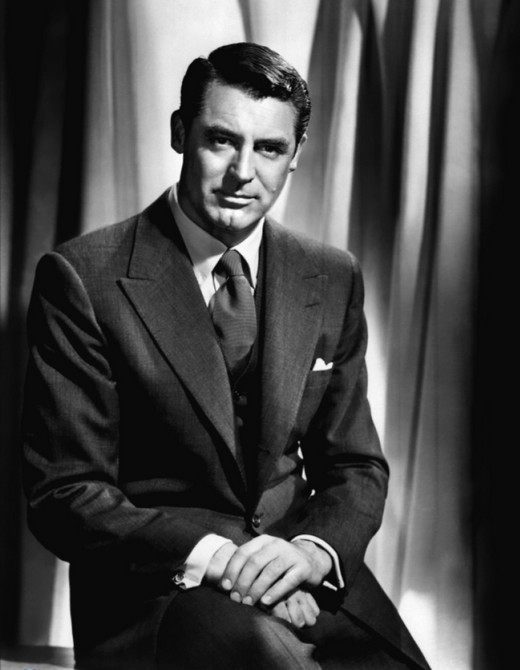Every man should have at least one. (I’ve spoken on this topic before, but it bears repeating.)
I can already hear the moans: “I never need to wear one! Why should I own a suit?” and “I hate them?!They’re uncomfortable!” and “I won’t work for a company which insists on men wearing a suit!” and so on, ad nauseam.
Don’t care. There’s something about wearing a decent suit which not only makes a man look good, but feel good — provided, of course, that you feel comfortable wearing one in the first place. (And if you don’t feel comfortable wearing a suit, you should become so, by wearing a decent suit until you do.)
“I never go anywhere that requires me to wear a suit!” Then it’s time you upgraded your choice of places to visit.
Here’s the thing: men look good in a well-tailored, stylish suit. It almost doesn’t matter if your body shape is not like a movie star’s, because if the suit is designed properly, it will hide your shortcomings better than any other type of clothing. (And if you don’t care what you look like, or subscribe to the idiot notion that looks shouldn’t matter, then you need to grow the fuck up — because appearance matters, and always has.)
Here’s another thing: women like a man in a suit. You only have to see the female reaction to Mad Men‘s Don Draper and Roger Sterling for proof. Another manifestation is when a women says, “Man! You sure clean up good!”, because believe me, that’s a statement of admiration despite the ungrammatical choice of words. (What it means, by the way, is that she’s looking at you with new eyes — and likes what she sees.) For better or worse, people will always take you more seriously when you’re well-dressed, and a good suit will always leave a favorable impression.
I won’t even go into the topic of the importance of wearing a suit when applying for a job, because that’s self-evident.
As for color, it’s simple: dark and muted, grey or blue (charcoal or navy-blue, for the uninitiated). And it should be fashionable. Men are blessed with the fact that suits’ fashions don’t change from year to year, but they do change from decade to decade, which is at least as often as you should buy a new one.
And lastly, there’s a very good reason to have at least one suit handy: there will come a time when you absolutely have to have one. It might be a funeral, a restaurant with a dress code (and spare me the gripe that you’ll never go to a place that has a dress code — once again, grow the fuck up), or maybe there’ll just be a time when you have to impress somebody.
Here’s a little scenario for you all to chew on. Imagine that you achieve something of importance: you saved someone’s life, you donated a large sum of money to a charity, you won a sporting competition, whatever. Let’s say that a consequence of this achievement is that you’re invited to the state capitol so that the Governor can shake your hand.
Let’s be clear about this: you can’t go in jeans and a fucking t-shirt, because that shows immense disrespect to the person who wants to honor you. You’ll need to wear a decent suit.
A suit is like a gun: you hardly ever need one, but when you do, you’ll need it really badly. So have that suit handy, and every so often, wear it out to dinner or some social event. You’ll be amazed at the reaction. The old truism still applies when it comes to going out: men wear suits; boys wear casual clothes. (In an old Cary Grant movie, a flashback made the 40-year-old Grant look like a teenager just by dressing him in casual clothes; when coming back to the present day, he wore suits — and matured instantly.)
Oh, and one last thing: colored shirts, no matter what the fashion magazines say, are for pimps and parvenu yuppies. The proper shirt color is white, with maybe a tiny pinstripe if you’re adventurous. (I have a number of identical “dress” shirts, all with a red pinstripe, because I once saw a good deal at Marshall Field and snagged a dozen. Good, discreetly-tailored shirts never go out of fashion.) And have half a dozen decent ties — not from WalMart or Target — at your disposal; once again, discreet “rep” ties with diagonal stripes never go out of fashion, ditto monocolored silk ones. And FFS: get a decent pair of black lace-up shoes to go with your suit, and keep them polished.
Take a look at the pics below: there’s barely a woman alive who wouldn’t respond positively to a man dressed like that — and if she doesn’t, she probably isn’t worth bothering with.



And the Governor would be equally impressed.













